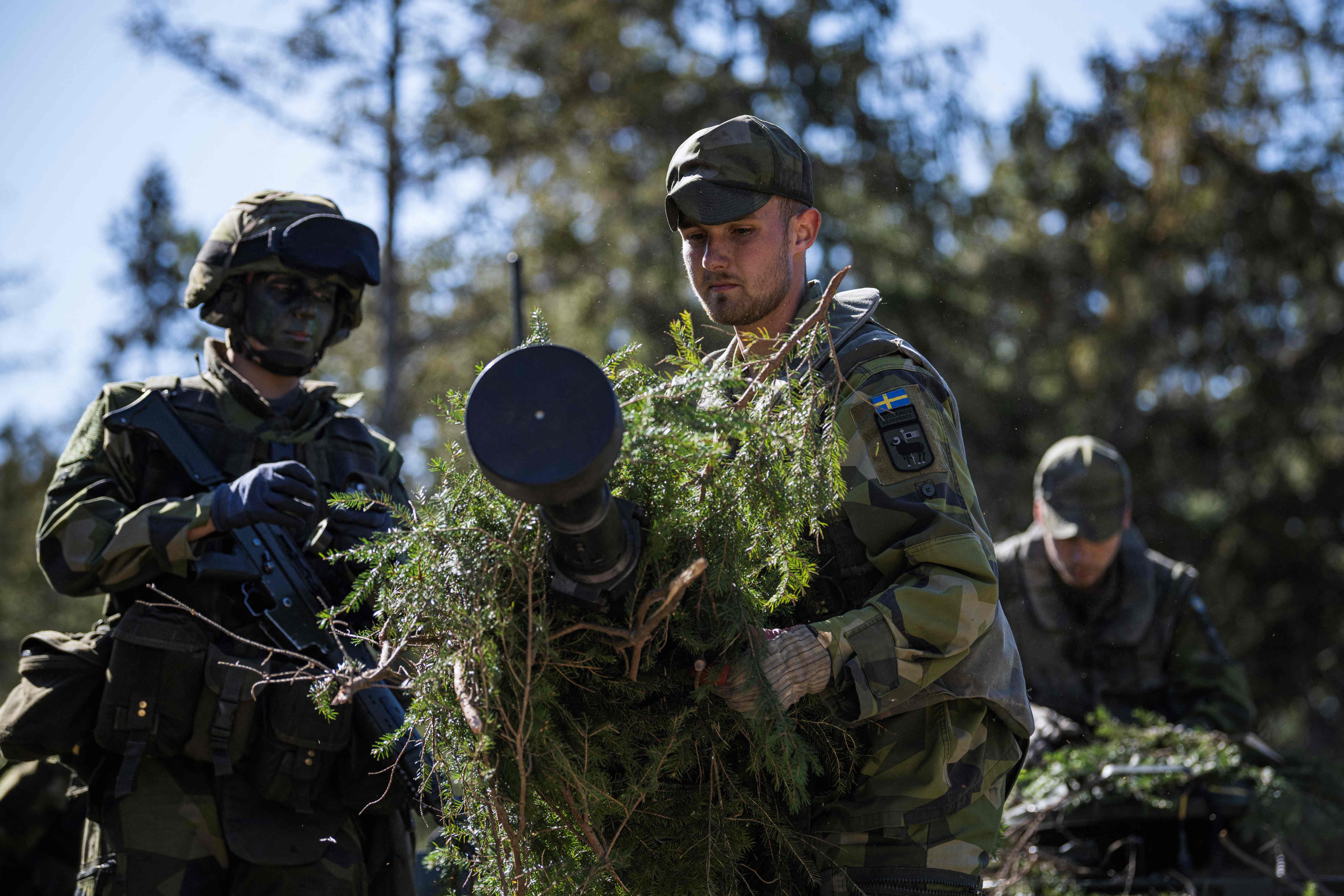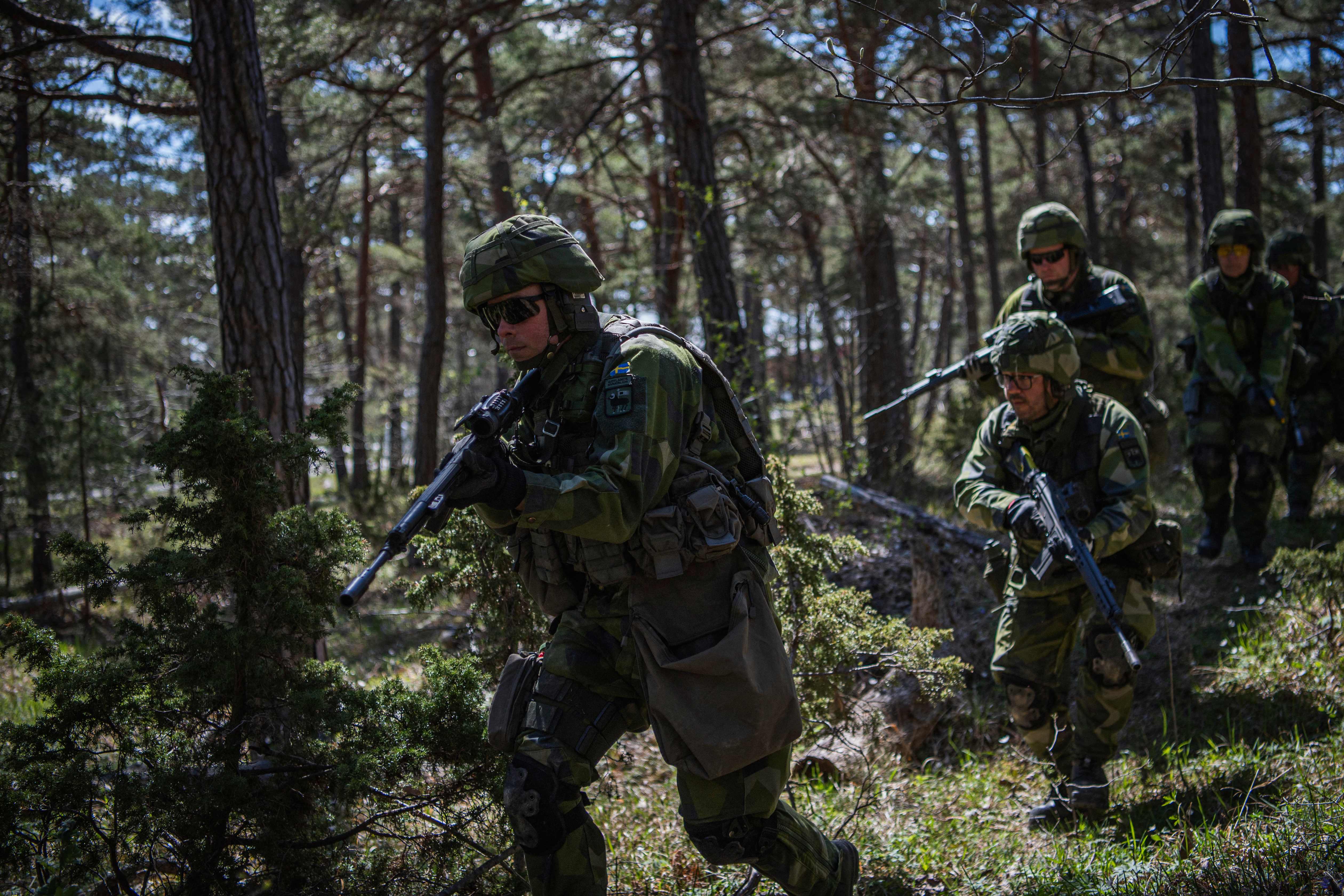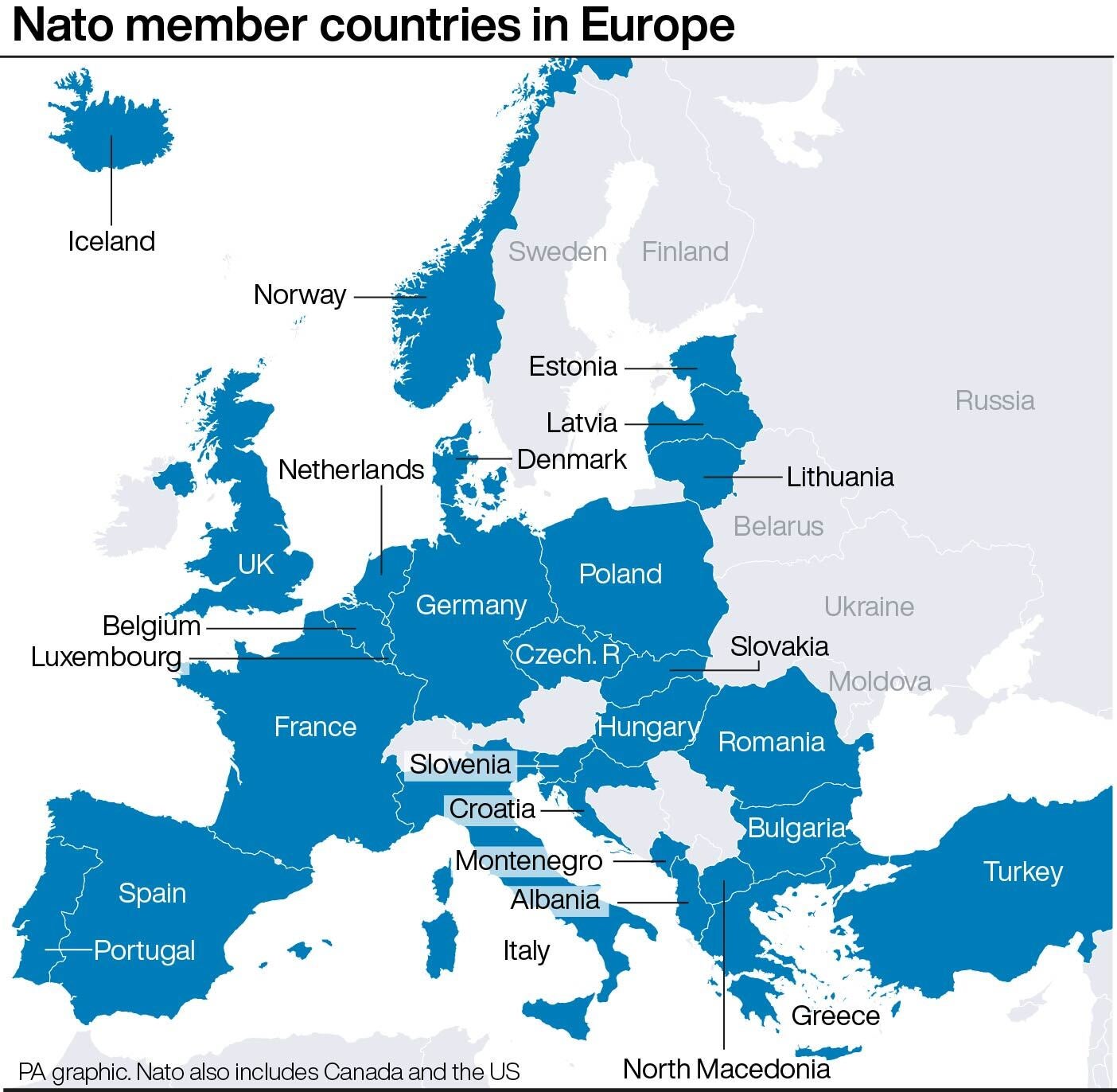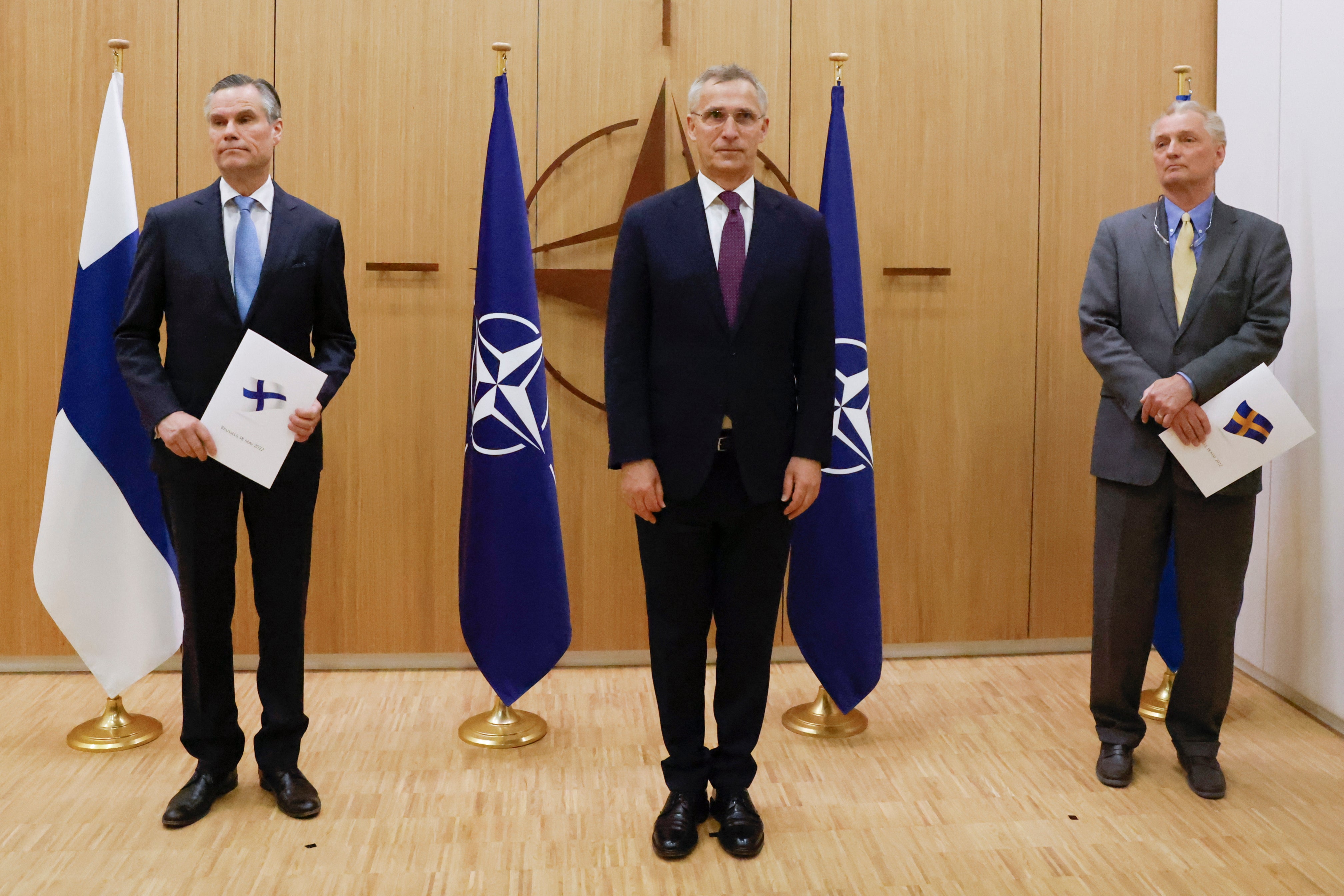How Russian disinformation could derail Nato entry plans for Finland and Sweden
In addition to Turkey’s objections, Russian influence across Europe could prove a barrier to Nordic expansion, says Borzou Daragahi


Your support helps us to tell the story
From reproductive rights to climate change to Big Tech, The Independent is on the ground when the story is developing. Whether it's investigating the financials of Elon Musk's pro-Trump PAC or producing our latest documentary, 'The A Word', which shines a light on the American women fighting for reproductive rights, we know how important it is to parse out the facts from the messaging.
At such a critical moment in US history, we need reporters on the ground. Your donation allows us to keep sending journalists to speak to both sides of the story.
The Independent is trusted by Americans across the entire political spectrum. And unlike many other quality news outlets, we choose not to lock Americans out of our reporting and analysis with paywalls. We believe quality journalism should be available to everyone, paid for by those who can afford it.
Your support makes all the difference.In Hungary, the Nato member politically closest to Russia, the largest pro-government news website openly promotes the Kremlin line on Nato expansion.
Zoran Milanovic, president of fellow Nato member Croatia, long considered an ally of the Kremlin, cultivated through business ties over the years, vows to block the impending admission of Sweden and Finland into Nato.
And even in Sweden itself, experts worry that Russian disinformation will exploit lingering doubts within the ruling Social Democratic party about entering Nato.
“No to Nato. No alliance with fascists,” says an announcement for a Stockholm protest against Nato scheduled for Saturday.
Turkey remains the biggest obstacle to Finland and Sweden’s aspirations to join Nato in an effort to form a united western front against Russia in the wake of its ongoing war against Ukraine.
But Ankara is not the only hurdle.
Across the bloc, in countries where years of Kremlin narratives have been promoted through sympathetic media and political figures, doubts are coming to the foreground. That could complicate plans to quickly incorporate Finland and Sweden into Nato within the next several months.
“I have been concerned that the entry process itself will create an opening for Kremlin information operations,” said Paul Levin, an international relations specialist at Stockholm University Institute for Turkish Studies.
Nato was formed during the Cold War to counter the Soviet Union. The US-led military alliance is now seen as a way to defend against Russia after Vladimir Putin launched an invasion of Ukraine in what is considered the first major military land grab by a European country against another since the Second World War.
The ongoing attack triggered a seismic shift in public opinion in favour of Nato membership in Sweden and Finland. Both fought repeatedly against Russian imperial power over the centuries but remained outside from Nato during the Cold War.

Member states have long had concrete concerns about what embracing Finland and Sweden into the bloc could mean for their security. Turkey, which joined Nato in 1952, has complained for years about what it perceives as cosy relations between Stockholm and the Syrian branch of the Kurdistan Workers Party (PKK), the outlawed Kurdish separatist group.
Ankara was outraged after Sweden’s foreign minister Anne Linde, defence minister Peter Hultqvist and several lawmakers met in March with Nasreen Abdullah, a leader of the PKK-influenced, Kurdish-led autonomous region of northeast Syria.
But years of Russian influence-building that included building political ties, political lobbying and commercial relations are bearing fruit in a way that could potentially pose other barriers to the entry of the Nordic nations into Nato.
Origo, one of Hungary’s largest news websites and largely allied with the government of the prime minister, Viktor Orban, this week gave voice to a leading Russian member of the Duma, former ice skater Svetlana Zhurova, who claimed Helsinki and Stockholm were being dragged into Nato against their will.
Meanwhile Hungary’s foreign minister has voiced sympathy for the concerns of Turkey’s president, Recep Tayyip Erdogan, who is friendly with Mr Orban.
Other government officials in Budapest have dismissed the war on Hungary’s eastern border as a battle between US and Russia on Ukrainian territory, a favourite talking point by Russian government mouthpieces. Others have described the war as a confrontation between the US and China.
Budapest has already opposed European Union energy sanctions on Russia, with Mr Orban warning that such restrictions would hit Hungary’s economy “like a nuclear bomb”.
“People with real power are saying these things,” said Peter Erdelyi, director of 444.hu, a Hungarian website that tracks disinformation. “We do see an escalation. Some of the stuff being said by the pro-Kremlin mainstream media is now said by mainstream government politicians.”
Croatia’s Mr Milanovic, who as president is commander-in-chief, has long been accused of having strong Kremlin ties through energy dealings. He has for months been downplaying or denying Russia’s alleged war crimes in Ukraine, including bombings of materinity hospitals and attacks on civilians.
When that position became untenable due to mounting evidence of atrocities, he adjusted his stance to argue that Russia was too dangerous to be provoked and that Nato should exercise “restraint” when it came to adding members.
“I know that moralists and people worried about the fate of every inch of the world won’t understand that, but I was elected to be Croatia’s president, not a cosmopolitan moralist,” he was quoted as saying.
Defying the opposition of his country’s prime minister and cabinet, he now argues that Finland and Sweden cannot join Nato until electoral laws in neighbouring Bosnia-Herzegovina, a non-Nato member, are reformed to become more friendly to ethnic Croats.

A study conducted by Pro-Fact, an anti-disinformation project by journalists and scholars in Zagreb and Dubrovnik, suggested that social media in Croatia was being flooded with pro-Russian messages.
In Sweden itself, the turn toward Nato has been wrenching for many in the country and could still run into political hurdles. Stockholm has long viewed itself as a bastion of neutrality and peace.
“When the Social Democrats did this traumatic U-turn on Nato, it went against deeply held identity issues about Sweden’s role in the world as a non-aligned force,” said Mr Levin.
Over the decades, Sweden has drawn waves of mostly leftist Turkish and Kurdish immigrants who have built roots in Sweden and transformed its political scene. They include members of the PKK or affiliated groups.
Some in Sweden are worried Nato membership might mean having to accede to Turkish-style anti-terrorism laws that make mere membership in an outlawed group – as opposed to committing or contributing to an act of terror – a crime.
“Swedish anti-terror laws are much less expansive than Turkish laws,” said Mr Levin.
Such political dynamics, said Mr Levin, could prove fertile ground for Russian disinformation campaigns in the coming weeks. In Russia, authorities have launched a poster campaign describing Astrid Lindgren, creator of the Pippi Longstocking children’s character, filmmaker Ingmar Bergman and other prominent Swedes as “Nazis” after Stockholm announced it would seek Nato membership.
In Turkey, political factions of the left and right have long been suspicious of Nato and the US, viewing Russia as a counterbalance to American power. But Kremlin-backed media have long targeted Turkey, often through the popular Turkish-language version of Sputnik, one of the Kremlin’s main international news outlets.

The coverage exploits doubts about Nato among Turkish leftists who feel victimised by US support of right-wing governments in Ankara, as well as right-leaning Turkish nationalists who feel the country is treated unfairly by the west.
“Sputnik has positioned itself so well,” said Merve Tahiroglu, Turkey watcher at the Project on Middle East Democracy in Washington. “When they criticise Nato and the US, they have these messages that are targeting and exploiting mistrust between the different factions.”
Often Sputnik need not do much. One of its most powerful tools, said Ms Tahiroglu, are simple Turkish-subtitled video clips of Mr Putin ranting against Nato and the west that inevitably go viral on social media.



Join our commenting forum
Join thought-provoking conversations, follow other Independent readers and see their replies
Comments